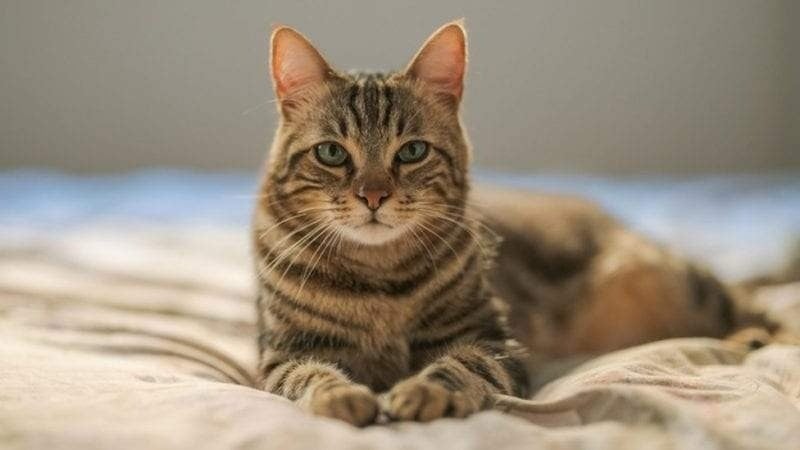
When is my cat considered old?
If your cat is old, i.e. over ten years old, it is important to provide it with special care to ensure its health and comfort. Here are some tips on how to properly handle older cats:
Comparing the age of cats to that of humans according to catster.com
1. Periodic vet visits:
Regular vet visits are one of the main elements of cat care, and their importance lies in several points:
Early detection of diseases: - The veterinarian can detect any early signs of diseases or health problems during periodic visits. This allows them to intervene effectively and early to address problems before they worsen.
Updating vaccinations : Making periodic visits to the veterinarian provides the opportunity to update the cat’s necessary vaccinations. This helps protect them from infectious diseases.
Guidance on home care: - Veterinarians can provide advice on how to best care for your cat at home, such as a proper diet and exercise program.
Monitoring behavioral changes: - The veterinarian can observe any changes in the cat’s behavior or daily activity, and can provide guidance on how to deal with those changes.
Pain Management and Therapeutic Guidance: If there is pain or a need for therapeutic care, your veterinarian can provide guidance on how to manage pain and improve your cat's quality of life.
2. Providing adequate food:
Providing elderly cats with appropriate food plays a crucial role in maintaining their general health and enhancing their comfort. Here are some tips on how to choose and provide appropriate food for older cats:
Special food for elderly cats: - It is preferable to choose types of food that are specifically designed to meet the needs of elderly cats. These foods contain balanced levels of nutrients that support overall health and reduce potential health problems.
Petaholic Nutram S5 Dry Food for Adult and Senior Cats
Royal Canin Dry Food for Senior Cats - Above 12 Years 2 Kg from Petaholic
Control calories: Older cats may be less active in general, so the amount of calories in food should be adjusted according to their daily needs. This helps in avoiding obesity problems.
Supplements: - Some elderly cats may need nutritional supplements such as omega-3 fatty acids and glucosamine to support joint and skin health.
Condor Canvit (Cartilage and Joint Support) for Cats 100g from Petaholic
Ease of digestion: - Choose food that is easy to digest, especially if the cat suffers from digestive problems. Fiber and digestive aids can be beneficial.
Providing sufficient water: - Water must be permanently available. Older cats may consume more water, and ensuring that it is available helps prevent kidney problems and support urinary system health.
Gradual dietary changes: - If you intend to change the type of food, do so gradually over several days to avoid digestion problems.
3. Rest and relaxation:
- The cat may need a quiet and comfortable place to rest and relax. It is preferable to provide a soft, warm bed in a quiet place.
4. Pleasant entertainment:
Although older cats may need less activity, providing moments of gentle entertainment, such as a quiet game, can be beneficial for keeping them physically active.
5. Pay attention to brushing:
- An older cat may need help taking care of its fur. Use a soft brush to avoid any discomfort and stimulate the natural circulation of oils in the fur.
6. Weight control:
- Make sure to monitor the cat’s weight and provide a healthy diet to maintain its appropriate weight. Excess weight can increase the risk of chronic diseases.
7. Providing protection:
Older cats may be less able to defend themselves. Make sure to provide a safe environment and avoid situations that might make her feel stressed.
8. Providing clean water:
- Ensure that clean water is always available to the cat to avoid dehydration.
Water drinker for cats and dogs - snail drinker from Petaholic
Remember that each individual cat may require different care based on its health condition and individual needs, so it is always best to consult your veterinarian for personalized guidance.

